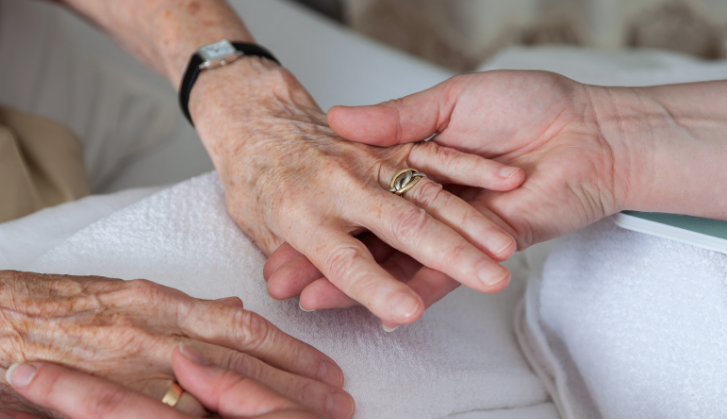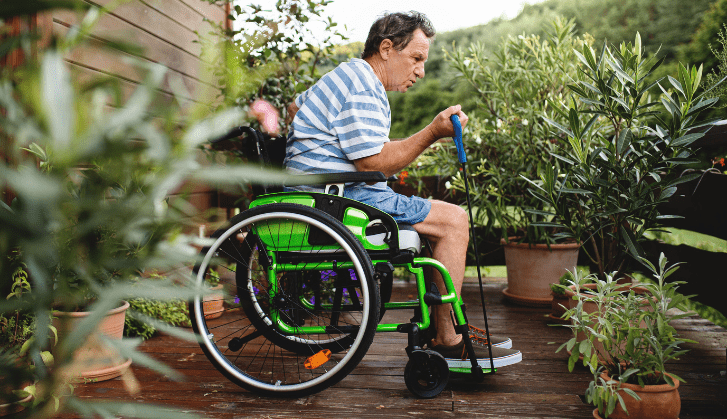Our Occupational Therapists (OT’s) undertake Assessments to determine an individual’s capacity to undertake specific tasks or activities.
During an assessment, your OT will meet with you and find out how you complete the chosen activities which may include self-care, self-management, household domestic, driving and other general activities both in and around the home, and out in the wider community and more.
Assessments are often requested by NDIS and can help to provide evidence to guide the development of your NDIS plan.
Assessments may involve your OT completing both an interview and some other formal assessments in order to gain the information and evidence required to support your care and support needs with the NDIS. By using observation, interviews, standardised assessments and involving stakeholders we are able to offer a complete and accurate assessment.

Our trained OT’s are aware of the information NDIS is looking for when accessing someone for eligibility for the NDIS system. Through the completion of a pre-NDIS assessment, we can assess the following:
- The impact of your disability on the completion of functional tasks
- The environment’s impact on your ability to complete daily tasks
- Your ability to complete self-care activities as well as instrumental activities of daily living, for example, shopping and cleaning
- The impact of your disability on your psycho-social aspects of daily living
The final report would include:
- Your functional limitations as a result of your disability
- Recommendations for specific interventions related to areas of difficulties that were identified through the assessment process (for example, therapy, modifications or assistive technology)
- Recommendations of support hours to maximise your independence and safety
- Recommendations of other allied health services that may benefit you
Our Function Capacity Assessments determine outcomes and report in the following areas:
- Mental health symptomology and how this impacts upon performance in daily activities
- Personal/self-care skills
- Domestic activity, including housework, laundry, lawn/garden care and home maintenance
- Physical function, including mobility, pain, hand function, seating and positioning
- Community mobility, including confidence in accessing the community, driving and public transport
- Psycho-social skills, including social interaction and communication skills
- Sleep and impact upon engagement in daily activities
- Sensory / Behaviours of concern
- Leisure and non-vocational participation
Recommendations may include:
- Assistance with participation in ADLs
- Strategies for task modification
- Training to overcome physical and/or cognitive barriers
- Selected aids and equipment
- Environmental modifications
- Referral to support services (eg. Support workers, day programs, employment support services, other allied health professionals etc).
- Referral for Behaviour Supports
An ILO Assessment is an evaluation of an individual to determine the home they live in and to set up supports in the way that best suits them. An ILO is a package of support that can help the individual live how they want in the home environment they have chosen. It’s not the home itself.
The assessment allows the individual to work out how they want to live, where they live and who they live with. There are lots of choices with ILO. They can share their home with friends or housemates. Or you might have a host arrangement or on your own with tailored support. ILO funding can be provided both in non-SDA or SDA residences.
SDA Assessment involves an extensive evaluation of the individual’s current and future needs. It then provides recommendations to NDIS regarding the eligibility for specialist disability accommodation and the specific environmental features the participant requires for optimal independence and safety.
This can include specific recommendations, for example, wheelchair-accessible homes, installation of ceiling hoists, use of automation technology or robust features to aid safety.
Slips, trips and falls are one of the leading causes of morbidity and mortality in older Australians and consequently a major threat to the well-being and quality of life of older people.
Recovery Station offers a fall prevention program that empowers individuals to embrace healthy behaviours that reduce the risk of falls. The program can be run as a group or individually. The program includes an assessment of your environment and equipment needs, completion of a tailored exercises program to increase balance and strength, review of mobility and discussion of other impacting factors such as appropriate footwear, vision, nutrition and medication management.
Our team can assess the functional, medical, ergonomic and performance components of driving and are approved by the Roads and Maritime Services (RMS) to complete this assessment. We have an in-depth understanding of the RMS road rules and knowledge of vehicle modifications which allow us to provide recommendations on driving decisions that can often be difficult or challenging to navigate.
Our assessment will determine if you need to modify your driving habits, modify your vehicle, have additional time and support to learn the complex skills involved with driving, modify your car to allow community access or to identify other transport options.
The key purpose of the assessment process is to determine the impact of disability, injury, illness, or the ageing process on commencing or returning to driving, as well as overcoming barriers for community access.




